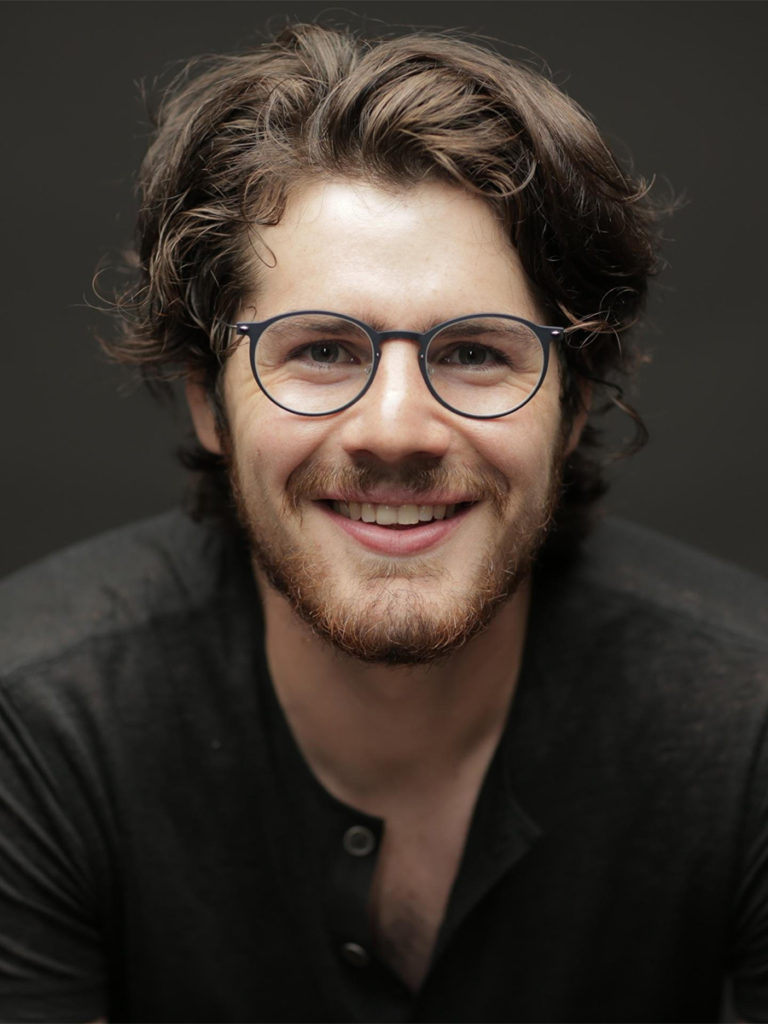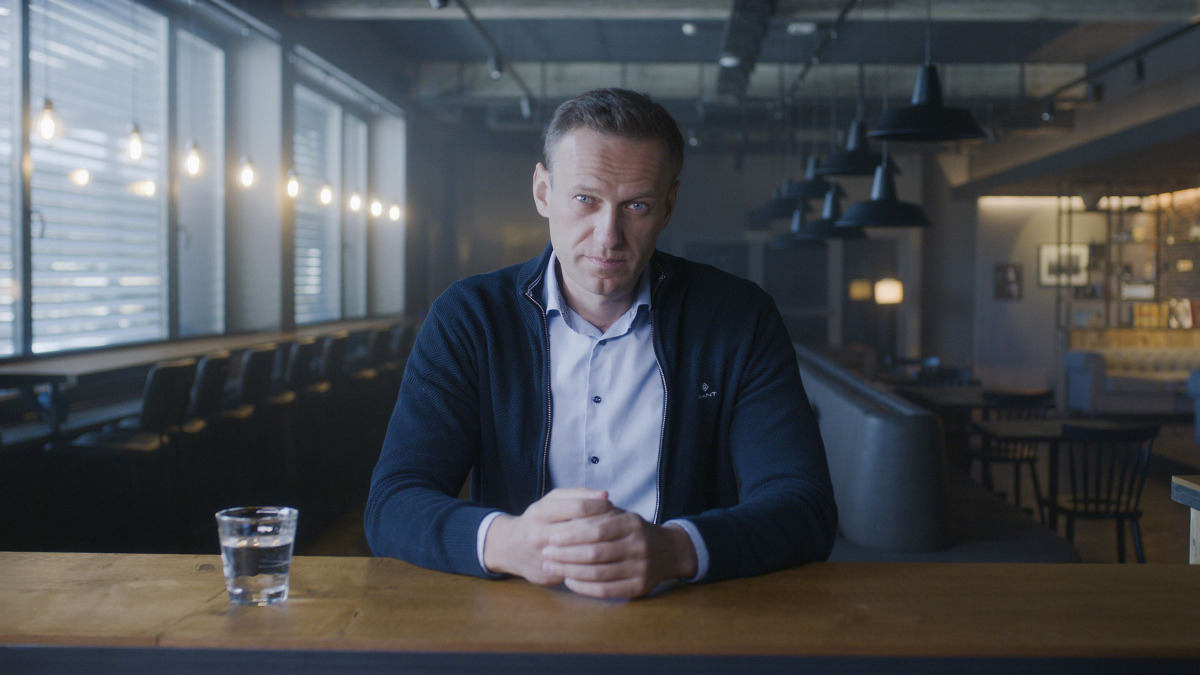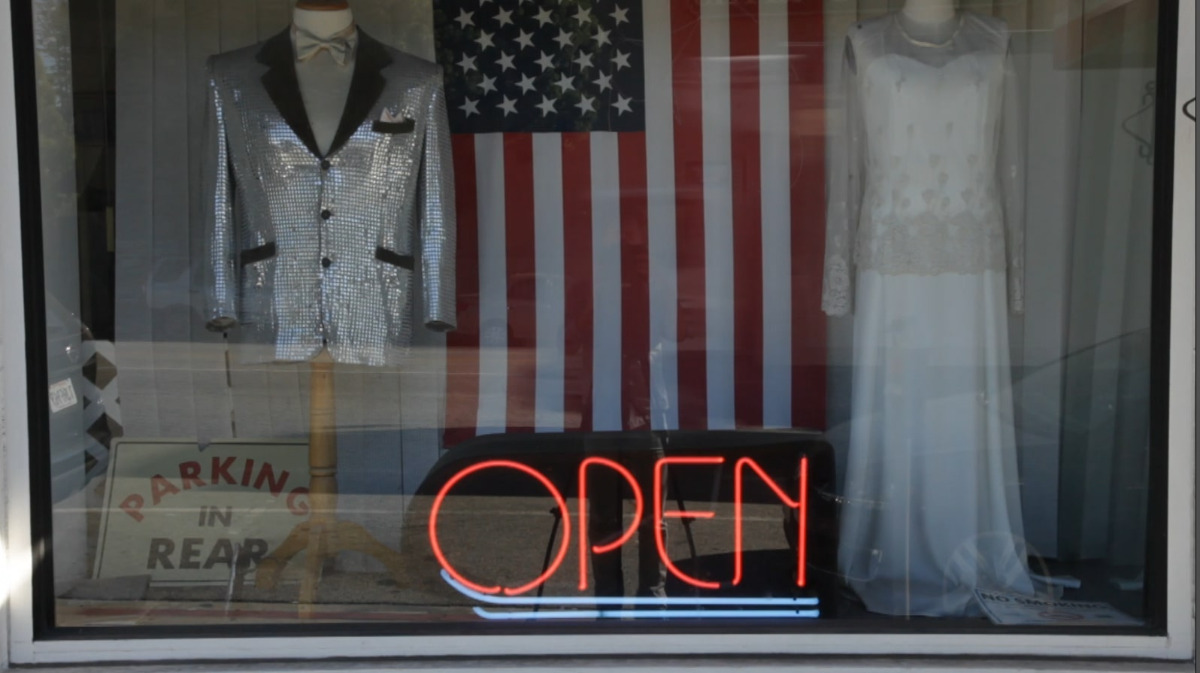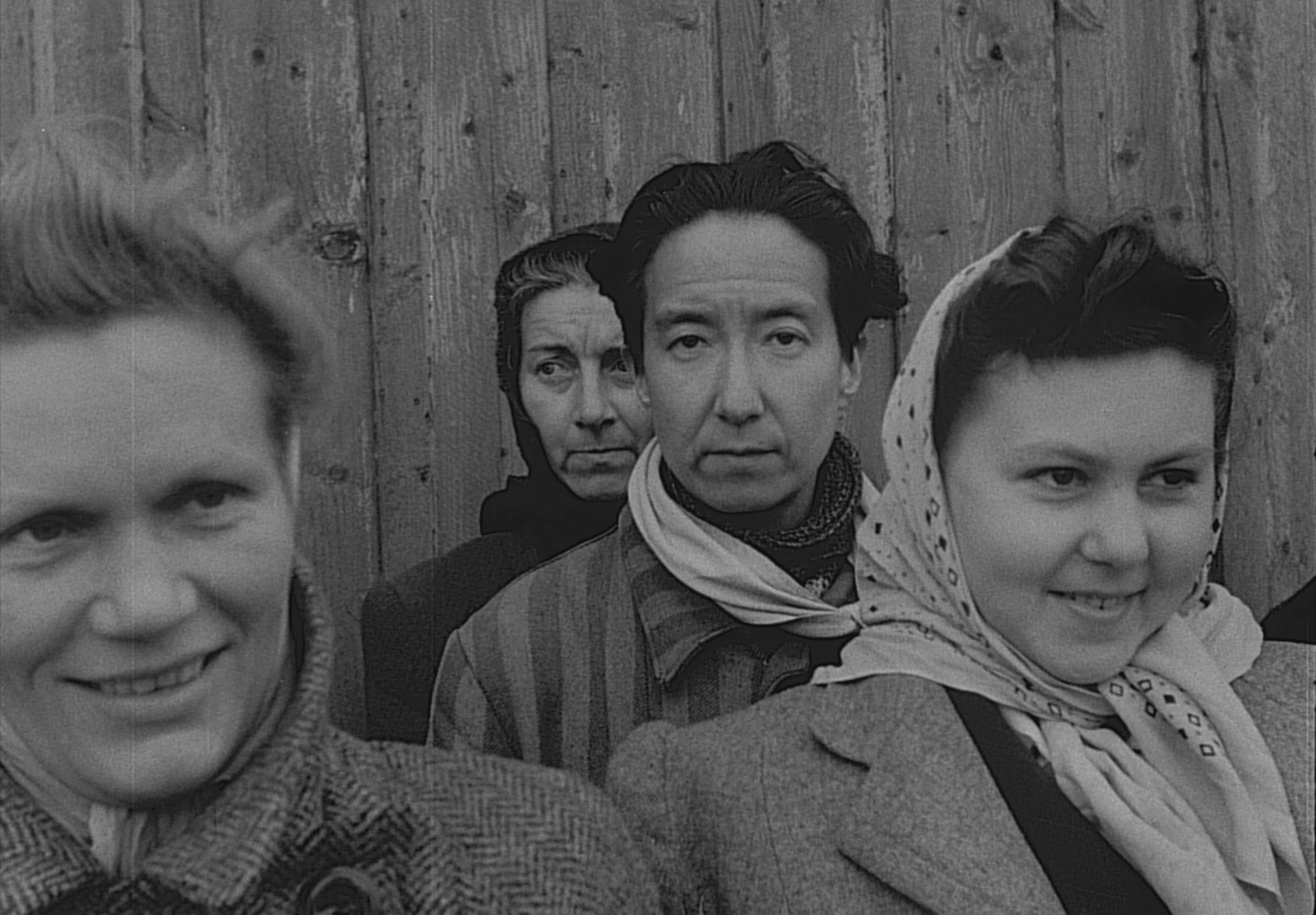Sometimes the right filmmaker and the right subject connect at the exactly the right time. Only a few years back, Canadian filmmaker Daniel Roher navigated the mercurial relationships of Robbie Robertson and his bandmates with Once Were Brothers. The doc, which opened the 2019 Toronto International Film Festival, offered a fine if occasionally frustrating look at a tumultuous group, but delicately avoided bruising egos.
With Navalny, Roher has firmly established himself as a premiere documentarian. The film provides a deeply resonant, effective, and nuanced portrait not only of a popular politician like Alexei Navalny, but also of the almost comically dark machinations of the modern Russian state. At its Sundance premiere, I described Navalny as having a “jaw-dropping connection to what’s taking place this very week in the Eastern region of Ukraine”—a review that was written shortly before the true horrors of the ongoing battle for Ukraine began and continue daily.
I had the pleasure of speaking to Roher following the film’s debut globally on CNN, a theatrical run in countries around the world, and prior to its screening as part of this year’s Hot Docs festival. We spoke of how the film has shifted even in the few months since its premiere, the challenges of not getting lost in the charisma of the protagonist, and how a filmmaker reticent to become part of the story himself was forced to have his voice overtly included in his truly remarkable accomplishment.

POV: Jason Gorber
DR: Daniel Roher
The following has been edited for concision and clarity
POV: You worked with a lot of very complicated musicians on your last film and went in a completely different direction this time. Can you talk about the unique challenges and opportunities working with Navalny?
DR: Every film’s different and when you’re a documentary filmmaker. You need to learn how to make each movie as its own unique thing, and that was certainly the case here. Navalny was a complicated, charismatic, challenging, but very unique character, both in terms of what he was trying to accomplish and who he was, and what he brought to the table with his humour and integrity. It was just very clear that this film was vital and important and that the subject was vital and important. Although I love The Band and their music is really important to me, there is a difference between making a film that is about rock and roll, versus making a film about democracy and the future of the world. There are some overlaps, but ultimately, it’s a very different beast.
POV: In some ways, you were more delicate with the sensibilities of musicians than you were with world leaders. I find that fascinating because the stakes are much higher, obviously. You were not reticent to question Navalny to his face about the things he does, which is refreshing given that film could have easily fallen into being hagiographic. Can you discuss the tensions and the opportunities of working with him?
DR: I appreciate that reading, and I would attribute it fully to the strength of the subject matter. Alexei is a very unique character, and being that he is seeking the presidency of the biggest country in the world, he is open to scrutiny. He understands that scrutiny and tough questions are part of his job and, to his credit, there was nothing I couldn’t ask him about. Not every subject is that open and that generous. That’s what I’ll say to that.
POV: [Laughs.] Fair enough.
DR: You can read between the lines. [Laughs.]
POV: Given that your subject is so open and generous, one would think that you become even more personally connected and emotionally invested, which carries a danger potentially of losing objectivity. Can you talk about your own personal navigation of all of this?
DR: That’s absolutely true, and that fear was always on my mind. Alexei Navalny’s charisma and personal likeability were something that I had to check and be mindful of. Our natural inclination was to be buddies. I think we really liked one another. He appreciated that I am politically active. I told him I have always dreamed about running for office back in Canada and he thought that was cool. We had personal connections, but I also understood that if I was going to do this film justice, if I was going to tell this story as it needed to be told, however I felt towards him, or however our relationship could be characterized, that couldn’t get in the way of the filmmaking. I had to maintain a critical gaze.
I never shied away from that, and I think ultimately he appreciated the integrity of the approach. But I would say that our relationship, the way we communicated with one another, is present in the film. The film opens with Alexei rolling his eyes at me and being like, “Oh, Daniel, no. I’m not going to make your boring movie. We’re going to make a movie that’s an exciting thriller, this is what we want to make.” And there was that kind of sarcastic, joking thing that is really how we communicated. I think it translates to film. It’s a reflection of our inner personal relationship for sure.
POV: I’m a critic, and I’m not going to ask you to share in my absolute derision for Citizenfour given your profession, but I think it makes an interesting contrast for a film that was incredibly lauded and incredibly damaging, not only to the way that it told the story, but in the way it coddled its subject matter. If there’s an antidote to that approach, I believe it is evident in what you have accomplished. Yet at some point in time, there must surely have been somebody, production wise or whatever, who wanted a simpler, more straightforward/simplistic/less ambiguous version of your film. How challenging was it to navigate that?
DR: It’s challenging when people represent the interests of this guy who I respect and care about who’s in prison and unable to comment on his own affairs. They’re telling you to change this or take that out. You need a strong resolve to say, “Absolutely no, we’re leaving it in the film.” That pisses people off; it makes them angry. But I think that the spirit of how I approach this project hearkens back to the very first conversation I had with Alexei. In that first meeting, Maria Pevchikh, his chief investigator, asked me that if we come to an impasse, where you want to go one way and we want to go the other way, and we can’t agree on how to proceed, what do we do? I very diplomatically answered that this is a collaborative medium, we’ll proceed in the spirit of collaboration, and it’s obviously important to the filmmakers that you guys appreciate the film and like the film and want to support the film. But, at the end of the day, there’s the conductor of the symphony, and the captain of a ship, and the director of a documentary. So, if we reach that impasse, we go my way. I was unequivocal about that from the very first conversation.
I think that that was met with ire from some of the folks on Navalny’s team, but I really do believe that Navalny himself appreciated the integrity of the approach. They asked me why they wouldn’t just go get someone who would do anything they wanted. I told them that was their prerogative, but what I had on tap was something loftier, something more elevated. I was able to convince Alexei of that, thankfully.
POV: Where do you get the chutzpah? How did you know you could do this?
DR: It’s all “Fake it till you make it.” I don’t know that I can do it. It comes from wanting to sit across from the guy and tell him all of these things and make grandiose statements to get the job. But do I know that I can do any of this? Absolutely not. All I have are my instincts, my chutzpah, and my work ethic. You have to get yourself in the door.
Life’s about showing up. You get the job, and you just work as hard as you can to deliver on what you’ve set out to do. Yes, there’s a lot of luck involved, but I also put my whole life on the line for this, there’s nothing I wouldn’t do for this film. There’s great personal risk that comes with associating a film with Alexei Navalny – just being in close proximity to him puts you at risk, and you’re under the eye of the Russian security services. But it’s too important, as he’s a once in a lifetime subject. I knew this immediately. But of course, when we set out, I never could have imagined what would have unfolded in front of our cameras, or where our little story about a murder investigation would end up.
POV: Let’s talk about those moments. In the film, you’re reticent to make the story about yourself, where other filmmakers might—and have—with similar subjects. Even when he’s addressing you, you demur. It is a directorial decision to recognize when the psychiatrist puts the question on you and then it back on them? Can you talk about not making it about yourself?
DR: I don’t think twice about it. You’re framing this as if it’s a unique, novel, big decision that I made, but, Jason—at no point would I ever have expected to be in this film. If you told me a year and a half ago that my voice would be featured in the movie, and that you’d hear me engaging in dialogue with Navalny, I would have said, “Are you kidding me? No way.” But that became an editorial necessity.
What I came to understand, what my editor convinced me of, is that the dialogue between Alexei and I is really revelatory and important, especially with certain story beats that we were having trouble integrating into the film. That’s why we made the decision to include my voice. Funnily enough, or ironically enough, what was the story beat that was giving us the most trouble? Nationalism.
You remember, in the first act of the film, I forced Alexei to explain why he got on stage and talked to these really bad and racist Nazi Russian guys. We had to put that conversation in the movie. That’s where the approach of using my voice, with me pushing him, which let the dialogue enter the film. I posited the question very clearly and soberly: “How can you be on stage with these guys?” He gave me the answer that he gave me. That’s when we incorporated the device of the sit-down interview serving like act breaks throughout the film.
What we see play out in this film, in that small microcosm, are the same tactics and events and horrors and tragedies that are playing out in Ukraine every single day. – Daniel Roher
POV: I’m always fascinated always about how art changes as time moves on. In other words, the art stays the same but we change. I can’t think of a better example than your documentary screening in January with a sense of foreboding, and here we are in April with Ukraine and Russia in full conflict. Could you talk about how the film has changed for you and how you have changed with this film even over the last few months?
DR: That’s a big question: you came to play! It’s really challenging because the war seems to recontextualize everything. The war seems to add a new urgency and vitality to the mission of the film. I think this film used to be an important story that was revelatory, that showed how this regime was terrible and negative and murderous. Now the film is, in a way, the canary in the coalmine. What we see play out in this film, in that small microcosm, are the same tactics and events and horrors and tragedies that are playing out in Ukraine every single day.
Putin uses murder to solve problems, as seen in our film. He also uses murder and crimes against humanity and all sorts of horrible things to solve problems in Ukraine. We see the utter incompetence of the Russian state and the Russian state apparatuses in our film. And we see their total ineptitude unfolding on the battlefields. And more than anything, we see an information warfare playing out in our film, this contortion of reality, an industry predicated on lies, and that’s exactly what’s fueling this war domestically in Russia. Fake news, fake stories: these crazy, whacky notions that somehow Ukraine is a Nazi state and Zelenskyy, the Jewish president, is the killer or a Nazi. It’s absolute lies, it’s all absurd.
Maria Pevchikh said that we could have renamed this film “I Told You So.” It’s all there. We see the crackdown, we see it all happening in a way that is really quite vital and overt and I think those are the things I think about more when I watch the film.
But more than anything, what I think is really important and tough for people to think about in this moment—and I understand that—is that this film must remind the world that Vladimir Putin is not Russia and Russia is not Vladimir Putin. Alexei Navalny and his team, his staff, and his supporters offer an alternate vision of what Russia could be.
In a time when the regime is murdering children every single day and committing war crimes en masse, the world must remember that there is an alternate vision of what Russia’s future could be. That’s what’s on offer from Alexei Navalny’s staff. That’s important for all of us to be mindful of at this point in history.
POV: It’s slightly solipsistic, perhaps, but I’ve argued there’s a uniquely Canadian experience of living beside a superpower that gives us a sense of context and an outsider vision that, for me, is what you get by being Jewish, being outside a dominant culture. It’s how our comedy developed with our ability to see things from the outside while aware of the mechanisms from within. It’s how our literature developed, both Canadian and Jewish. So, Mr. Canadian Jew, first of all: let’s get hard-core. Go back a few generations, is your family from Ukraine or Russia?
DR: Ukrainian-Polish. In that neighbourhood. The Austro-Hungarian empire.
POV: Some shtetl somewhere, exactly. You’re travelling back East, and you’re going with all of the baggage that you bring. Can you talk about your personal journey? You did not aim to make yourself part of the story, yet you are able to tell these stories and provide witness in a way that generations past would not have been able to. In some way, that is the most beautiful part of the story.
DR: It’s funny, what comes to mind is two-fold: first and foremost, I want to speak to my experience as a Canadian, and someone who grew up in a country where we have a lot of work to do of course in terms of creating a fully realized vision of what we want to be as a nation. I’m very lucky to have grown up in a country where you can be yourself and you can go to Synagogue. You can practice any religion you want, and say what you want to say, and vote for the politicians you want to support, and so forth.
You learn not to take that for granted when you are spending your time around men and women who are fighting an authoritarian regime that uses murder to solve their problems. It forces you to appreciate where you come from and it forced me to appreciate the flawed but vibrant democracy that we have in Canada, for all of its foibles, all of our histories, our own horrors of our history, all of these things. It forces you to appreciate the freedoms that we enjoy.
Then, as a Jew, and someone who grew up surrounded by Holocaust survivors, I think about freedom and what that means, especially in the context of Alexei being locked up. We just celebrated Passover a few weeks ago, and Alexei is in bondage in a way. He’s there because of his political beliefs and his political feelings. That is extraordinarily challenging to reconcile and think about in 2022.
There is a moral imperative as someone who grew up going to Synagogue and thinking about the concept tikkun olam, “to heal the world.” I think democracy is a morally just part of modern society. It’s something that I’ve pushed to support and fight for in any context. Being able to support Navalny on his mission is vital.
I don’t know if Alexei Navalny will be the next president or a president of Russia, I don’t know if he’d be the right man for the job, but what I do know is that he should have the opportunity to run, to plead his case, and to get the support of the Russian population.
It’s through my lens as a Canadian who’s enjoyed freedoms and living in a free country, and as one of the first generations of world Jewry ever who has never experienced persecution the way my grandfather has, or my great grandparents have, who came from parts of the Russian empire, that I’m mindful of these.
POV: This also speaks to me is in one of your other answers, which is that we have the ability and training to delineate between the acts of the state and the acts of the people, and to judge a country and the country’s worth not based on who’s currently in power.
DR: I think that’s critical, and I always get into trouble for saying this. I personally have a lot of issues with Israel. As a Jew who loves Israel, and loves going there, the government sometimes makes me feel ashamed an embarrassed. I can totally delineate between the Israeli people and the Israeli government, and the actions of the government versus the actions of the people. I think it’s important that we’re able to do that around the world, and understand that the Russians aren’t Putin and Putin isn’t Russia.
POV: The idea of Russia is not by definition Putin’s idea, and the idea of Israel is not the idea of the ruling political party.
DR: That’s right, it’s not what Naftali Bennett, if he had carte blanche, would want his nation to be. Or Benjamin Netanyahu.
POV: Or Daniel Roher.
DR: [Laughs.] That’s right! But no, all these things are obviously nebulous and complex and challenging. But more than anything, right now in history, I keep thinking about how the actions of a ruling class do not represent the will of the people at large. We don’t know the will of the Russian people at large because they are not allowed to express it in free, fair and open ways. I think all people with a moral conscience around the world have to understand that an alternate future is possible for Russia and all people of good conscience have to aspire to it.











